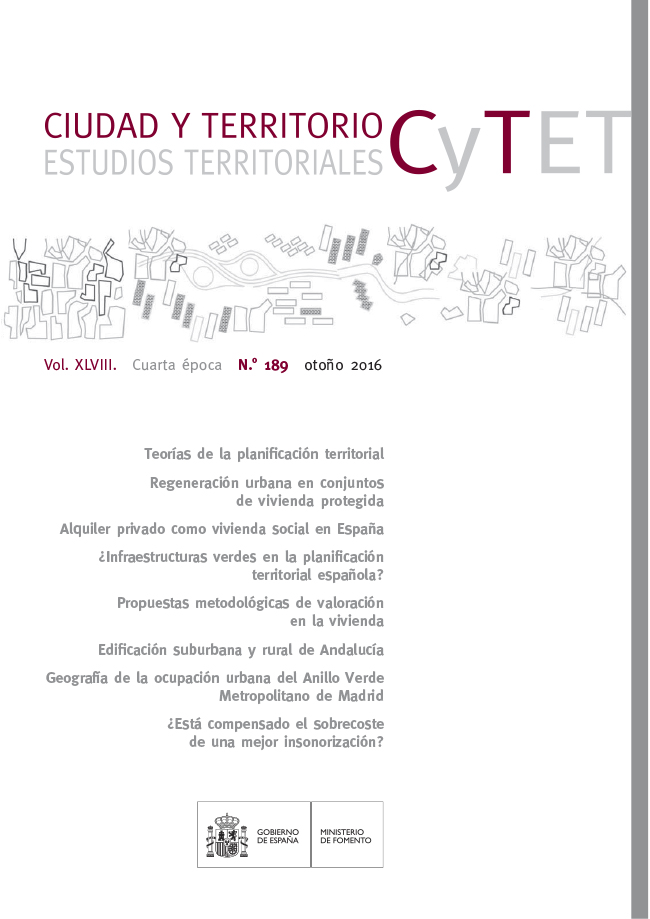Private Renting as Social Housing in Spain
Keywords:
Private rental, social housing, crisis, vulnerabilityAbstract
Spain’s property market is characterised by having a tenancy system that is skewed
towards ownership, to the detriment of the rental market, and in particular social housing, which
has been totally neglected and is now merely residual. The world economic and financial crisis has
had highly negative effects on the Spanish economy, creating an unstable framework for employment
and growth. To this we must add the considerable social conflict that has arisen because of the lack
of affordable housing, as evidenced by the increase in evictions and the number of people who are
homeless. Our hypothesis considers the private rental market to be operating as a provider of social
housing in Spain. To confirm this idea, statistics from the ECV and EU-SILC is cited, as well as other
data published by the Bank of Spain, the CGPJ and other entities. This data shows that low-income
households are being absorbed by the private rental sector, even though this option worsens or at
least does not improve the affordability issues, as a high proportion of income must be allocated to
housing services. In view of the findings of this study, several recommendations for housing policy
are made.
Downloads
Downloads
Published
How to Cite
Issue
Section
License
Copyright (c) 2016 Montserrat Pareja-Eastaway, Teresa Sánchez-Martínez

This work is licensed under a Creative Commons Attribution-NonCommercial-NoDerivatives 4.0 International License.
Considering the provisions of the current legislation on Intellectual Property, and in accordance with them, all authors publishing in CyTET give -in a non-exclusive way and without time limit- to the Ministry of Transport, Mobility and Urban Agenda the rights to disseminate, reproduce, communicate and distribute in any current or future format, on paper or electronic, the original or derived version of their work under a Creative Commons Attribution-NonCommercial-NoDerivative 4.0 license International (CC BY-NC-ND 4.0), as well as to include or assign to third parties the inclusion of its content in national and international indexes, repositories and databases, with reference and recognition in any case of its authorship.
In addition, when sending the work, the author(s) declares that it is an original work in which the sources that have been used are recognized, committing to respect the scientific evidence, to no longer modify the original data and to verify or refute its hypothesis. Author(s) also declare that the essential content of the work has not been previously published nor will it be published in any other publication while it is under evaluation by CyTET; and that it has not been simultaneously sent to another journal.
Authors must sign a Transfer of Rights Form, which will be sent to them from the CyTET Secretariat once the article is accepted for publication.
With the aim of promoting the dissemination of knowledge, CyTET joins the Open Journal Access (OA) movement and delivers all of its content to various national and international indexes, repositories and databases under this protocol; therefore, the submission of a work to be published in the journal presupposes the explicit acceptance by the author of this distribution method.
Authors are encouraged to reproduce and host their work published in CyTET in institutional repositories, web pages, etc. with the intention of contributing to the improvement of the transfer of knowledge and the citation of said works.








 Enlace a CyTET en Linkedin
Enlace a CyTET en Linkedin